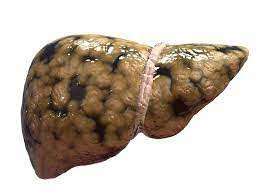The liver, our body’s second-largest organ, is a true unsung hero. Often overshadowed by the heart and brain, the liver plays a vital role in keeping us healthy, yet it’s frequently neglected. This remarkable organ has the unique ability to recover and regenerate, but despite this resilience, it often suffers due to our lifestyle choices.

Functioning as a detoxifying powerhouse, the liver filters toxins from our blood, aids in digestion, and regulates a myriad of metabolic processes. It’s involved in over 500 essential tasks, making it indispensable for our survival.
However, the liver’s ability to regenerate doesn’t grant us a free pass to abuse it. Excessive alcohol consumption, poor diet, and certain medications can lead to liver diseases like cirrhosis and fatty liver disease. These conditions often develop silently and can have severe consequences if left unchecked.

The good news is that liver damage is often preventable and, in early stages, reversible. Simple lifestyle changes like a balanced diet, regular exercise, and moderating alcohol intake can significantly improve liver health. Additionally, being mindful of medication use and avoiding exposure to environmental toxins are crucial steps in protecting this vital organ.
In conclusion, it’s high time we give our liver the attention and care it deserves. By understanding its importance and taking proactive steps to maintain its health, we can ensure this unsung hero continues to perform its critical functions, keeping us healthy and thriving.







